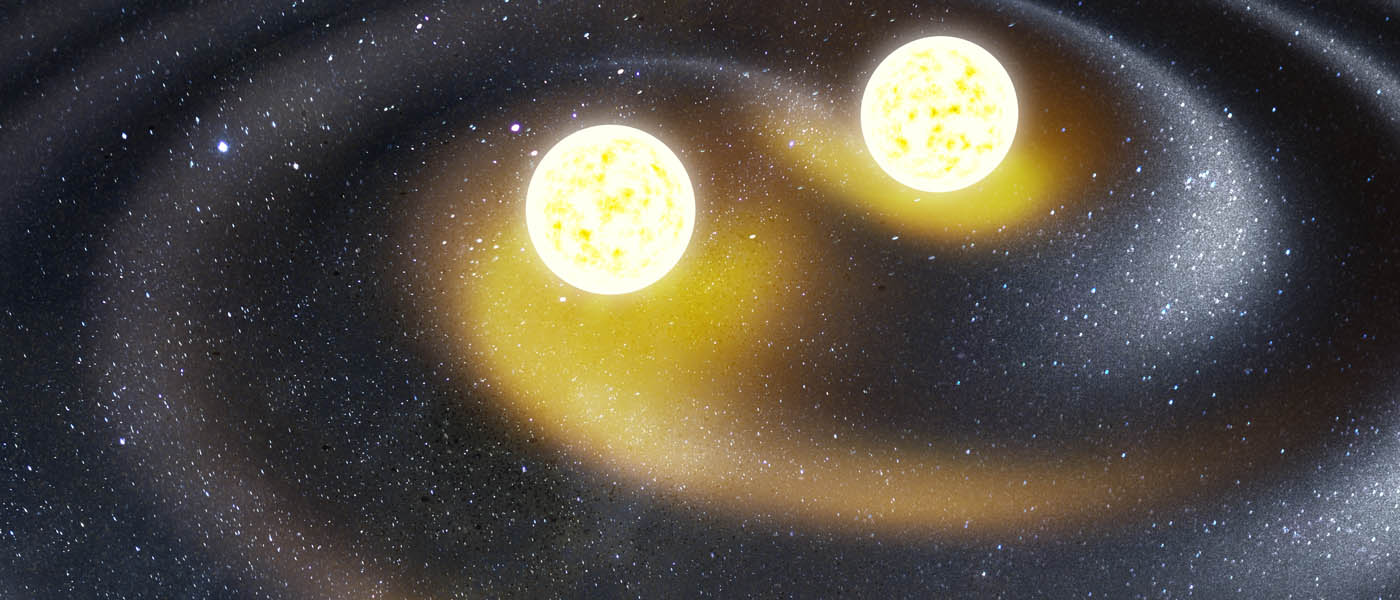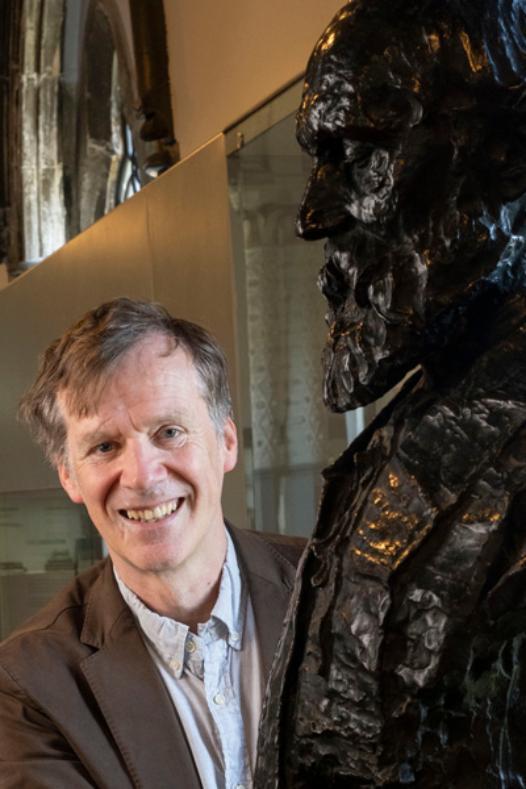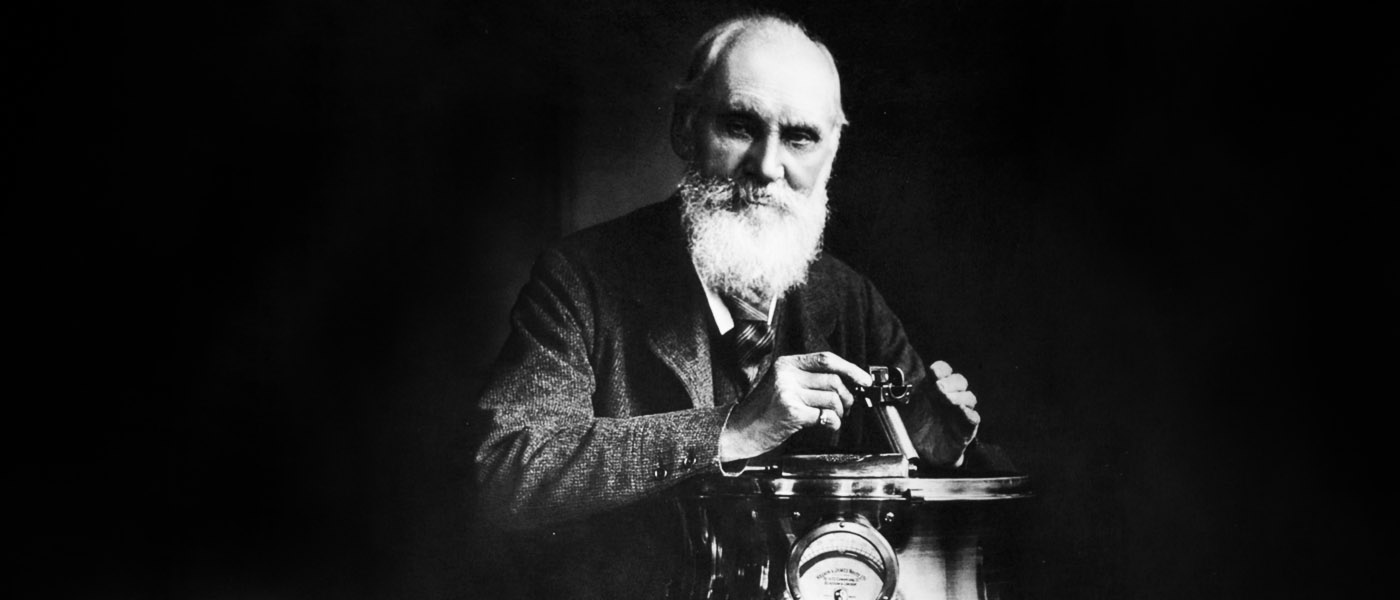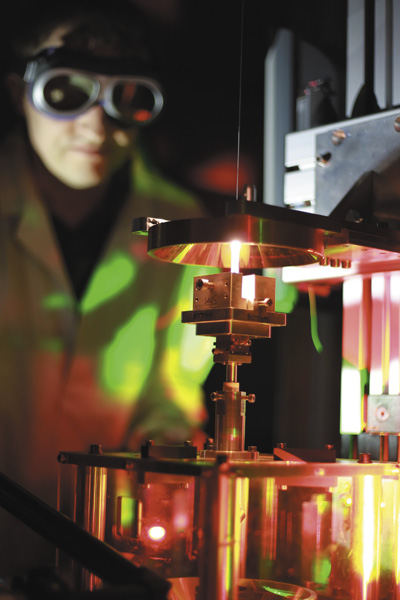
The path to innovation
By Sophie Lambert
Lord Kelvin’s groundbreaking expertise in precision measurement and mathematics continues to inspire and inform academics and researchers at the University today, despite the century and a half that has passed since he carried out his work here.
Many of these individuals are pushing the boundaries of what it is possible to measure and playing key roles in cutting-edge technologies such as quantum optics and gravitational wave detection.
"When you can measure what you are speaking about, and express it in numbers, you know something about it; but when you cannot measure it, when you cannot express it in numbers, your knowledge is of a meagre and unsatisfactory kind. – Lord Kelvin
Professor Miles Padgett is Kelvin Chair of Natural Philosophy at UofG. He believes that Lord Kelvin’s commitment to scientific application is one that endures at Glasgow.
"Kelvin is the first scientist I can think of who, in addition to doing all his fundamental research in thermodynamics and understanding temperature, actually rolled up his sleeves and applied his intellect to solve the real engineering problems of the day,” he says. “He had fantastic research outputs but worked hard to ensure the societal impact of his research.
"His attitude of being entrepreneurial, pragmatic and seeking knowledge persists today and perhaps that’s Kelvin’s true legacy.
"Inspired by Kelvin’s use of deep scientific knowledge to drive practical solutions, my colleagues and I are now turning complex quantum science into technologies for healthcare, green energy and navigation. We hope our efforts, like Kelvin’s, will lead to future innovations that improve lives and address global challenges."

"I'm proud to hold the position that celebrates Kelvin, one of the University's most remarkable inventors and innovators, and whose example continues to inspire scientists and engineers around the world today."
Professor Miles Padgett
Chair of Natural Philosophy Professor Sheila Rowan, director of the University’s Institute for Gravitational Research, agrees that Kelvin’s dedication continues to inspire and motivate research today. "I’ve spent my career working on designing and building instruments to detect gravitational waves,” she explains. "Lord Kelvin was a great believer in precision measurement and he also thought about how his work might be practically useful. Research at my institute looks at other ways that our wave detectors could be used. For example, they can measure magma flow and the geophysical effects of volcanoes. We should always be thinking about what other applications there are, because they can be revolutionary."
"It took decades to build these instruments and there were many challenges. However, the teams didn’t give up and Kelvin would have understood that." – Professor Sheila Rowan on the development of precision instruments to detect gravitational waves.
Professor Martin Hendry, UofG’s Clerk of Senate and Vice-Principal, was also part of the team that played a key role in the historic first direct detection of gravitational waves in 2015. He explains that Kelvin’s spirit can still be felt in the field of gravitational astrophysics and cosmology. “We have this idealised picture of science as a virtuous circle where theoreticians come up with ideas and experimentalists test those ideas,” he says. “However, a lot of the time there’s a long lag between the ideas and the ability to test them. This is true when it comes to our gravitational wave work as Einstein basically predicted their existence before we had technology capable of measuring them.
"The spirit of Kelvin is present in this idea that theory can take the lead and guide you to fundamental truths, even if it takes a while before you can experimentally test them. The gravitational wave discovery opened a new window on how to study the universe and I think Kelvin would have been fascinated by that."

Lord Kelvin with one of his many inventions, the binnacle compass, which helped improve safety at sea.
This article was first published October 2024.


